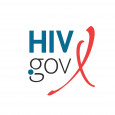On Thursday, July 25, HIV.gov livestreamed four conversations during IAS’s International AIDS Conference (AIDS 2024) in Munich, Germany. Read summaries of today’s coverage below:
Research Highlights
Dr. Jeanne Marrazzo, Director of the National Institute of Allergy and Infectious Diseases at NIH, shared research highlights with Kaye Hayes, Deputy Assistant Secretary for Infectious Disease and the Director of the Office of Infectious Disease and HIV/AIDS Policy. Dr. Marrazzo celebrated how much the field is learning about long-acting pre-exposure prophylaxis (PrEP), from the results of the PURPOSE 1 study of lenacapavir for twice-yearly PrEP, to new evidence on cabotegravir (CAB-LA) administered every two months for PrEP, including its safety in pregnancy.
Dr. Marrazzo reflected on the IAS conference theme, “Put People First,” and shared what she had been hearing from conference attendees. Among her observations was the importance of involving people living with and affected by HIV throughout the scientific process.
Watch their conversation at the top of this blog post.
HIV Prevention
Dr. Carl Dieffenbach and Dr. Michele Andrasik of the HIV Vaccine Trials Network & COVID-19 Prevention Network summarized today’s plenary on HIV prevention and noted that while more scientific advances are needed to get to an HIV vaccine, they explained that the field is on the right path. Dr. Dieffenbach described an HIV vaccine development strategy called germline targeting, which trains the immune system to generate several types of HIV broadly neutralizing antibodies (bNAbs)—a promising approach for a preventive vaccine.
They also reviewed findings that showed long-acting cabotegravir for HIV PrEP can safely be used during pregnancy, based on an analysis from a large multi-country study. Finally, they talked about the importance of learning from missed opportunities in HIV prevention service delivery, particularly within the context of PrEP, to ensure that services are person-centered and reach people in a way that is acceptable and convenient for their lifestyles.
View their conversation below:
Bi-Directional Collaboration
HIV.gov Director Miguel Gomez spoke with Tanchica West of the Health Resources Services Administration and Dianne Rausch of the National Institute of Mental Health to discuss the global-domestic bi-directional satellite session on global health reciprocal innovation that took place today. Kaye Hayes delivered opening remarks during the session, which featured case examples, research, and highlights of innovations. Please follow HIV.gov for more information on this bi-directional session.
Watch their conversation below:
PACHA Reflections
Caroline Talev, Executive Director of the Presidential Advisory Council on HIV/AIDS (PACHA), talked with PACHA Global Subcommittee Co-Chairs Jennifer Kates and Patrick Sullivan about what stood out to them at AIDS 2024. They said the conference theme—Put People First—resonated with them, as well as news about twice-yearly, long-acting injectable PrEP for women, and global-domestic bidirectional learning about HIV prevention and care.
View their conversation below:
About AIDS 2024
The International AIDS Conference is the world’s largest conference on HIV and AIDS. Taking place July 22–26 in Munich, Germany, AIDS 2024 brings together in person and virtually an estimated 15,000 scientists, policymakers, healthcare professionals, people living with HIV, and others at the intersection of science, advocacy, and human rights. The conference features more than 200 sessions, including plenaries, symposia, oral abstracts, workshops, Global Village activities, pre-conferences, and satellites. Visit the conference website for more information.
Follow, watch, and share our coverage of the conference on HIV.gov’s Facebook page, Twitter/X, YouTube, and the LinkedIn page for the HHS Office of Infectious Disease and HIV/AIDS Policy.
This blog post was originally published July 25, 2024, on HIV.gov.








Comments
Comments